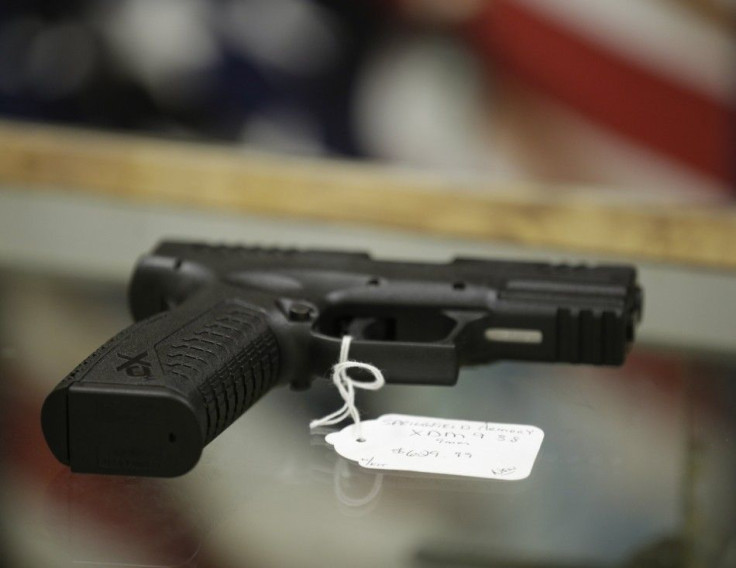America's Reaction to Shooting Massacres: Buy More Guns

Recent massacres where gunmen shot up public gatherings had Americans scrambling ... to buy more guns, as consumers worried both about being caught unarmed in the middle of the next open cross-fire and about the possibility the government's reaction to recent tragedies would be to restrict the sale of firearms..
While that assertion might sound like the words of a cable-news pundit or Washington lobbyist, it's actually a finding in an investment report by KeyBanc Capital Markets analyst Scott Hamann, who wrote Wednesday that background check applications for purchasing firearms in July were likely "inflated as a result of the reportedly high demand for firearms in some areas following the Denver movie theater shooting."
The KeyBanc report, which notes the number of gun purchases has been steadily increasing since July 2010, further explains that "the demand environment as about 20% higher than what we would characterize as a 'normalized' trendline."
But it ultimately sees those high sales as "unsustainable", noting "sales surrounding the political environment are likely non-recurring in nature and have potentially pulled forward some demand from future periods."
The note downgrades the asset manager's previous recommendations on shares of Smith and Wesson Holding Corporation (Nasdaq:SWHC) and Sturm, Ruger and Company (NYSE:RGR).
Hamann is not the first analyst to point out the fact that sales of weapons in the U.S. have gone on full-auto mode recently, or that said dynamic has not always been positive for gun manufacturers. Earlier this year, there was concern on Wall Street after Sturm, Ruger said it was unable to keep up with the increase in demand for its pistols and rifles, and suspended deliveries to independent firearms wholesalers.
Hamman's analysis apeared to be having an effect on the markets. Shares of Sturm, Ruger were down 4.33 percent, or $2.08, to $46.00 during lunchtime in the New York Stock Exchange. Shares of Smith and Wesson sold off even more sharply, with shares traded on the automated Nasdaq board down 10.55 percent, or $1.03 to $8.73.
© Copyright IBTimes 2025. All rights reserved.





















